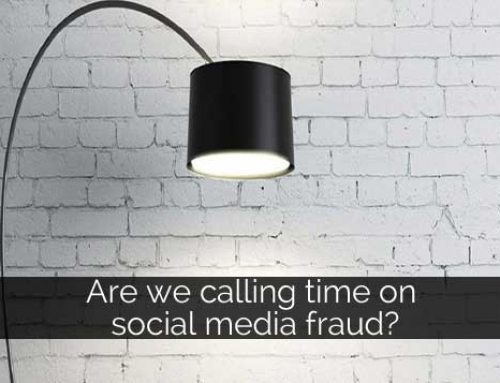“But, Facebook’s not a customer service channel for us…”
What was your primary reason for being on Facebook? For most organisations, it’s all about visibility and reach – selling more, and more often.
But, here’s the thing: If you’re a consumer-facing company, and you set up a Facebook page, there will be a customer service dimension to what you do.
Consumers come in many colours, and if they have a question or a problem, they will use the communications channel that THEY prefer – not the one that you do.
So if you’re going to be present on a social media site, you actually have only two choices: to provide great customer service, or to provide bad customer service. But either way, you will be engaged in a customer service dialogue.
Doing it badly often takes the form of putting up the equivalent of a “Talk to the hand, cos the social media team ain’t listenin‘” sign on the Facebook page.
For example, Page usage guidelines stating that the Facebook page is not a customer service channel, or a pinned post with alternative contact details. Score some points for at least trying to set expectations, but here’s the thing: a proportion of consumers will ignore it, and ask anyway. Then they’ll be disappointed at best, or angry at worst, when you either don’t respond or (as they see it) fob them off with a phone number.
Give them great service instead
So, if you’re going to be there, be prepared to be brilliant instead. Yes, dealing with customer service queries can be resource intensive, but generally only for larger businesses – if you’re running a local shop it’s unlikely that you’ll be getting queries hourly. And if you are – hey, that’s a whole lot of potential purchases you’re able to move along!
It’s really not that hard to do a great job; in the time it would take to type “sorry, we don’t actually help with anything here, please phone this number instead” your staff could be creating real customer loyalty.
Here are the key things to consider:
Knowledge is power
Make sure whoever takes care of your Facebook Page has at least a working knowledge of the basics around your business. Whether that’s a staff member or an agency, you need to spend the time to build a “frequently asked questions” list for them and ensure that they understand it.
Plus, they need to know where to go for answers to anything more complex, and what kind of turnaround time they should expect on questions. While we’re on that subject:
Facebook is your Batphone
Your Facebook page is the closest thing you’ll get to a Batphone for your customers. It’s the place where you’ll find out first when there’s a problem brewing with your product or service, or if a new launch is about to be a huge success. So response times are crucial if you want to keep that customer intelligence flowing.
Most users will have forgotten what they wrote within a couple of days, and an unhappy customer will be seething within a single one. Monitor your Facebook page as frequently as you can (it’s not hard; have email alerts set up for new posts, or use Hootsuite or similar on your mobile to keep a quick check on things) but as a minimum twice per day.
Mind your language
We’ve talked about this before in the context of a company who do get it brilliantly right on Twitter, but striking the right tone for the Facebook environment is really important. It shows that you “get” the platforms and are engaging with your customers on their level.
Be friendly, helpful and not “corporate”, and if your customers are using informal, conversational language then make sure you do too.
Reap the rewards
Now, the massive payoff to doing a great job. Obviously a happy customer is great in itself, but by interacting with that customer via Facebook you’ve radically increased the impact of your excellent service.
If a customer calls you up on a telephone customer service line with a problem and you not only fix it, but also apologise and send them a bouquet by way of compensation, only your customer and the service agent knows about it. But conversations on Facebook are visible to that customer’s friends, and to the general public via your Page.
So suddenly, instead of just one happy customer, you have a happy customer plus a bunch of really impressed people who now feel really confident about doing business with you. And what might that be worth in future sales?
Rose McGrory Social Media offers private, tailored Facebook training courses just for your organisation. So if you’d like to argue with us about this in person, do get in touch!





[…] Uh Yes, You WILL Be Providing Customer Service on Facebook […]